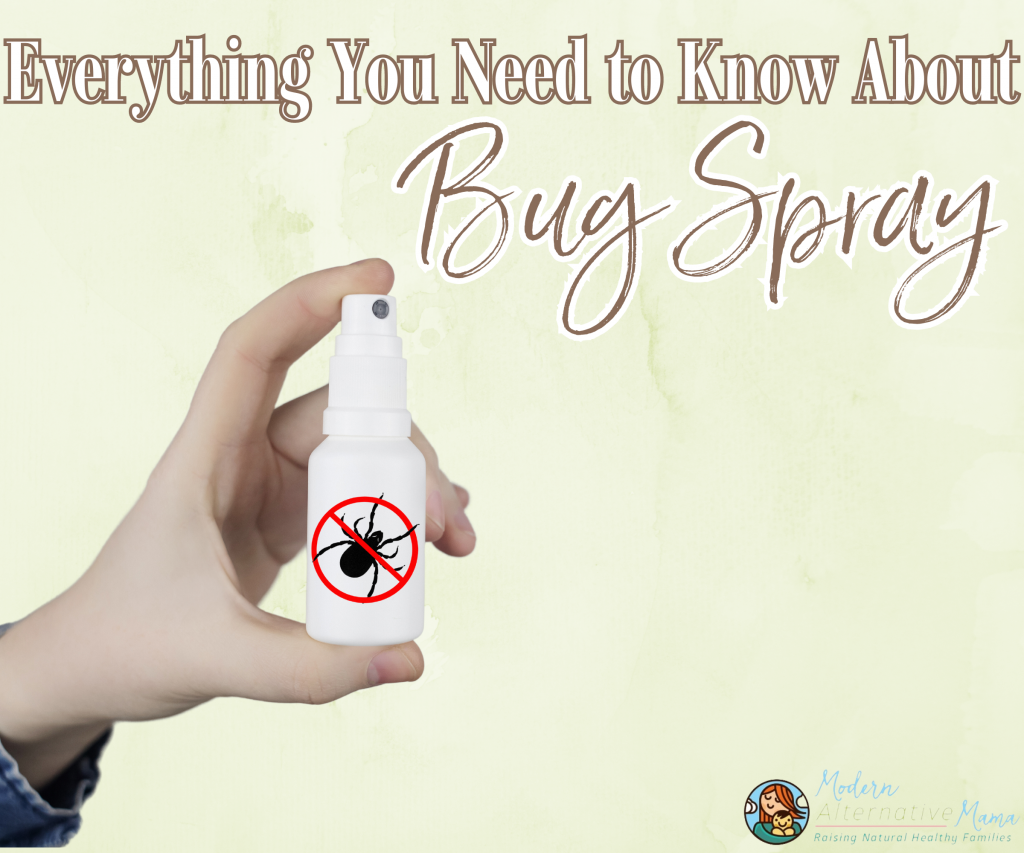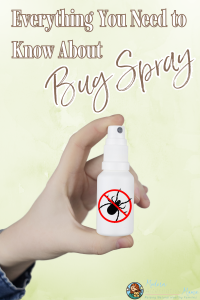Summertime rolls around, and we enjoy outdoor activities more frequently! Whether we are getting daily vitamin D sitting outside, swimming in pools, beaches, and lakes, hiking, walking on trails, or barbequing, one thing is for certain, there will be bugs, and they may bite.
No one wants to get bit by bugs! Bites present risks of infection through insect-spread disease. Mosquitoes can spread Zika, West Nile, Chikungunya, dengue, and malaria. House flies can transmit bacterial diseases, while ticks are known for spreading Lyme disease (1). If you happen to be bitten by a tick, and Lyme Disease is a concern, check out our blog, How to Make a Tick Kit.
What is Bug Repellant?
Bug repellents do not kill mosquitoes and other insects but are designed to deter insects from biting people. N, N-Diethyl-meta-toluamide (DEET) is considered the gold standard in mosquito repellents, so DEET is the most commonly used active ingredient to deter mosquitos, biting flies, fleas, and ticks.
Fun fact: Bug repellents mask the scent of our carbon dioxide trail, pushing out the DEET chemical signature (or whatever is used) instead (2).
Other commonly recommended chemicals include:
- Metofluthrin
- Oil of lemon-eucalyptus (not the same as lemon eucalyptus essential oil)
- Picaridin
- Ethyl hexanediol (3)
Insecticides and pesticides, in general, pose carcinogenic risks (4). Let’s focus on DEET since it is the most common active ingredient in commercially available insect sprays for human use.
According to the Centers for Disease Control (CDC), DEET is toxic if swallowed, so specific guidelines must be followed for “safe” use. It’s important to keep DEET away from eyes, mouth, and broken skin, especially around young children (5).
The American Association for the Prevention of Cruelty to Animals (ASPCA) recommends against using DEET on dogs or other pets, stating that if the product gets into the animal’s eyes, the following symptoms may occur: conjunctivitis, scleritis, blepharospasm, epiphora, lethargy/depression, uveitis, and corneal ulceration. If inhaled, the pet could experience airway inflammation or dyspnea, requiring steroids, bronchodilators, and oxygen. Intestinal upset is a common side effect for animals. Central nervous system reactions can occur in products with high concentrations of DEET (80% or more), including ataxia, disorientation, tremors, and seizures (6).
If those symptoms are possible for our fur baby friends, consider the possible consequences for small children throughout the summer.
DEET is linked to the following issues:
- Allergic Reactions: redness, rash, swelling, and hives (7,8)
- Neurotoxicity in Gulf War syndrome patients (9)
- Encephalopathy in children (10,11)
- Seizures and brain malfunction from ingestion (12)
Despite the risks, DEET is still considered a safe preventive measure when used with “common sense” safety protocols. It is recommended as the top choice until a better repellent is available (13).
So that is our main question—is a better repellent available that is effective and truly safe? According to an April 2020 journal article (14), the picture painted against potential adverse effects of DEET is just fear-mongering and “irrational chemophobia.”
If you have children and pets, avoiding the worry of accidentally ingesting any toxic chemical is perfectly rational. Why shouldn’t we examine the risks, the science, and the options? We think you can and should ask the hard questions.
How to Naturally Deter Bugs
Sometimes, we just need something that repels bugs. But who wants to douse themselves in unsafe chemicals that absorb into our skin?
Luckily, there’s a perfectly safe way to avoid those bites (without the junk) by using natural oils with insecticidal properties. An insecticidal property is when a substance, or in this case, an herb, can kill, harm, repel or mitigate one or more species of insects (15). You can use the following oils and essential oils to keep bugs at bay effectively:
Catnip Oil
Studies have found catnip has insecticidal properties. Catnip oil is about ten times more effective at repelling mosquitos than DEET. One study found that the oil from the plant could repel mosquitos effectively for two to three hours (16).
Citronella Essential Oil
Citronella contains natural oils that protect against mosquitoes. A study review found that combining citronella oil and vanillin provided mosquito protection for up to three hours (17). Another study found citronella alone provided 57% insect protection but evaporated quickly, decreasing effectiveness over time, so reapplication is necessary (18). These results explain why most natural bug repellants contain multiple essential oils.
Note: The plant alone does not have insecticidal properties; the oils in the leaves provide this benefit (19). Instead, deter insects by placing a few drops of citronella essential oil in diffusers, a bowl of steaming water, or an oil warmer. Citronella candles are also very effective and easy to make at home (recipe below)!
Patchouli Essential Oil
Patchouli has been studied for its potential insecticidal properties. One study analyzed several essential oils and found patchouli oil was most effective at killing house flies (20). Another study found patchouli oil demonstrated insecticidal properties in several ant species (21). Additionally, patchouli oil had similar effects on two species of mosquitoes (22).
Rosemary Essential Oil
Studies have found rosemary to be an effective insect repellent. One study discovered rosemary essential oil caused complete mortality of spider mites at concentrations that are not phytotoxic to the host plant (23). Although studied concentration levels are higher than we’d want for topical application, one study said:
“When compared with 11 other essential oils derived from plants grown in Argentina, rosemary oil had the longest repellent effect on the mosquito Aedes aegypti, with 100% repellence for 90 minutes at concentrations as low as 12.5% (24).”
Thyme Oil
Thyme has remarkable insecticidal properties, especially its oil! A study showed thyme could repel mosquitoes for 60 to 180 minutes. It also demonstrated a protection rate of 91% at a 0.05% concentration in topical treatments (25). Another study demonstrated thyme essential oil’s effectiveness against adult mosquitoes and larvae (26).
Pro tip: Throwing thyme leaves on a campfire can offer 85% protection for 60-90 minutes (26)!
Non-Toxic Bug Repellant Alternatives
Of course, knowing what naturally deters bugs will help you decide on effective, non-toxic bug repellant alternatives. You could purchase a pre-made product or make your own.
If you’re looking to make your own bug repellant, here are a few DIY recipes you could try:
I like keeping Earthley’s Pest Aside on hand. Pest Aside contains citronella and patchouli essential oils, amongst other bug-repelling ingredients, to naturally and effectively prevent bug bites! Repels bugs to ward off those itchy, annoying bites so you can enjoy the great outdoors. This salve comes in a convenient tube, so it’s perfect for taking on the go for a mess-free application.



